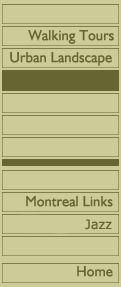
 |
Mary di Michele Adapted from Putting Down Roots: Montreal's Immigrant Writers
CONTRADICTION, PARADOX, AND BITTERSWEET ANOMALY are some of the characteristics denoting the work and careers of Montrealâs writers of Italian origin. Members of Quebecâs third largest linguistic group after French and English, they write in a variety of languages and have widely differing aesthetic sensibilities and attitudes to their heritage. And why not? Expecting dozens of writers of varied backgrounds, places of origin, ages, and interests to somehow present a common front through ethnicity would be na•ve and reductive. The Abruzzi-Molise-Campobasso region of Italy figures in the writing of several of Montrealâs writers of Italian descent. In the 1950s, a mass migration from the area brought many to Montreal and Toronto. Montreal poet, playwright, and professor Filippo Salvatore (who, like Antonio DâAlfonso, works in three languages) has actually written a book of critical essays in Italian about Canadian writers who hail from Molise, Tra Molise e Canada (Lionâs Club, Larico, 1994): they include playwrights Micone and Rossi, novelists Nino Ricci and Giose Rimanelli who both lived in Montreal for a time, and poet/novelists Mary Melfi and Mary di Michele.
By moving to Montreal in 1990 from Toronto to take a teaching job at Concordia University, Mary di Michele has swum against the current of writers such as Fulvio Caccia and Antonio DâAlfonso who have left Montreal in recent years. Born in the town of Lanciano in 1949, di Michele immigrated to Toronto with her family at the age of six. Referring to the linguistic minefield negotiated by her contemporaries in Quebec, she comments, "It was much simpler in Toronto. You have a public language which is English and you have your home language. You experience your family life in Italian, and you have your two lives." I interviewed di Michele in her Cape Codöstyle cottage in Notre-Dame-de-Grace on a sweltering summer day in 1995. A small woman whose triangular face is framed by wings of blonde curls and dominated by a pair of clear blue eyes, she sipped tepid coffee beneath the gentle swish of an overheard fan. The catch in di Micheleâs voice hinted at tragedy, an impression belied by spurts of her ready laughter. She is the author of the novel Under My Skin and seven poetry collections of which the most recent is Debriefing the Rose. "I think of myself as an Italian-Canadian woman writer," di Michele said comfortably, adding with a small laugh, "living in Montreal, in Quebec. All these particulars are ... the complex mosaic that forms the self. And I like to mine all these particulars." A lyric poet whose works has a strong narrative and dramatic thrust, di Michele often writes in an autobiographical, if not necessarily literal, way. Her early works in particular depicted life in a patriarchal, traditional family in which daughters were tugged between the claims of duty and of personal fulfillment. Creating the appropriate language to match her experience made her a writer. "That my family life, my emotional life was in one language, and my intellectual life in another..., I had to bring that experience into the English language." Her experiments yield a linguistic richness that not only encompasses the inclusion of Italian but also of French and German expressions in her work. Di Michele speaks of words lovingly, commenting on their acoustics and musicality. Words, she says, "have a texture, they have a soul as well as meaning". SELECTED BIBLIOGRAPHY: |
|
|
| Downtown Montreal Guide | Old Montreal Guide | Guide to Eating Out | Walking Tours | | Urban Landscape | Guide to Literary Montreal | Montreal Vintage Photos | | Montreal Links | Montreal Jazz | www.vehiculepress.com © Véhicule Press, All Rights Reserved |